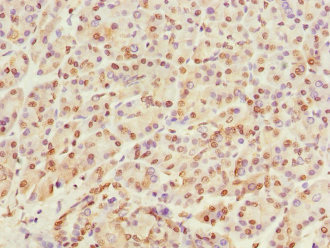Full Product Name
Rabbit anti-Homo sapiens (Human) PTPRO Polyclonal antibody
Alternative Names
FMI antibody; GLEPP 1 antibody; Glomerular epithelial protein 1 antibody; hPTP-J antibody; Pancreatic carcinoma phosphatase 2 antibody; PCP-2 antibody; PCP2 antibody; Phosphotyrosine phosphatase U2 antibody; Protein tyrosine phosphatase PTP U2 antibody; Protein tyrosine phosphatase PTPU2 antibody; Protein tyrosine phosphatase receptor type O antibody; Protein tyrosine phosphatase U2 antibody; Protein-tyrosine phosphatase J antibody; Protein-tyrosine phosphatase pi antibody; Protein-tyrosine phosphatase receptor omicron antibody; PTP pi antibody; PTP U2 antibody; PTP-J antibody; PTP-RO antibody; PTP-U2 antibody; PTPase U2 antibody; PTPRO antibody; PTPRO_HUMAN antibody; PTPROt antibody; PTPU 2 antibody; PTPU2 antibody; R-PTP-O antibody; R-PTP-psi antibody; Receptor type protein tyrosine phosphatase O antibody; Receptor type tyrosine protein phosphatase O antibody; Receptor-type protein-tyrosine phosphatase psi antibody; Receptor-type tyrosine-protein phosphatase O antibody; Receptor-type tyrosine-protein phosphatase U antibody
Immunogen
Recombinant Human Receptor-type tyrosine-protein phosphatase O protein (30-300AA)
Immunogen Species
Homo sapiens (Human)
Purification Method
Antigen Affinity Purified
Concentration
It differs from different batches. Please contact us to confirm it.
Buffer
PBS with 0.02% sodium azide, 50% glycerol, pH7.3.
Tested Applications
ELISA, IHC
Recommended Dilution
| Application |
Recommended Dilution |
| IHC |
1:20-1:200 |
Storage
Upon receipt, store at -20°C or -80°C. Avoid repeated freeze.
Lead Time
Basically, we can dispatch the products out in 1-3 working days after receiving your orders. Delivery time maybe differs from different purchasing way or location, please kindly consult your local distributors for specific delivery time.
Usage
For Research Use Only. Not for use in diagnostic or therapeutic procedures.







